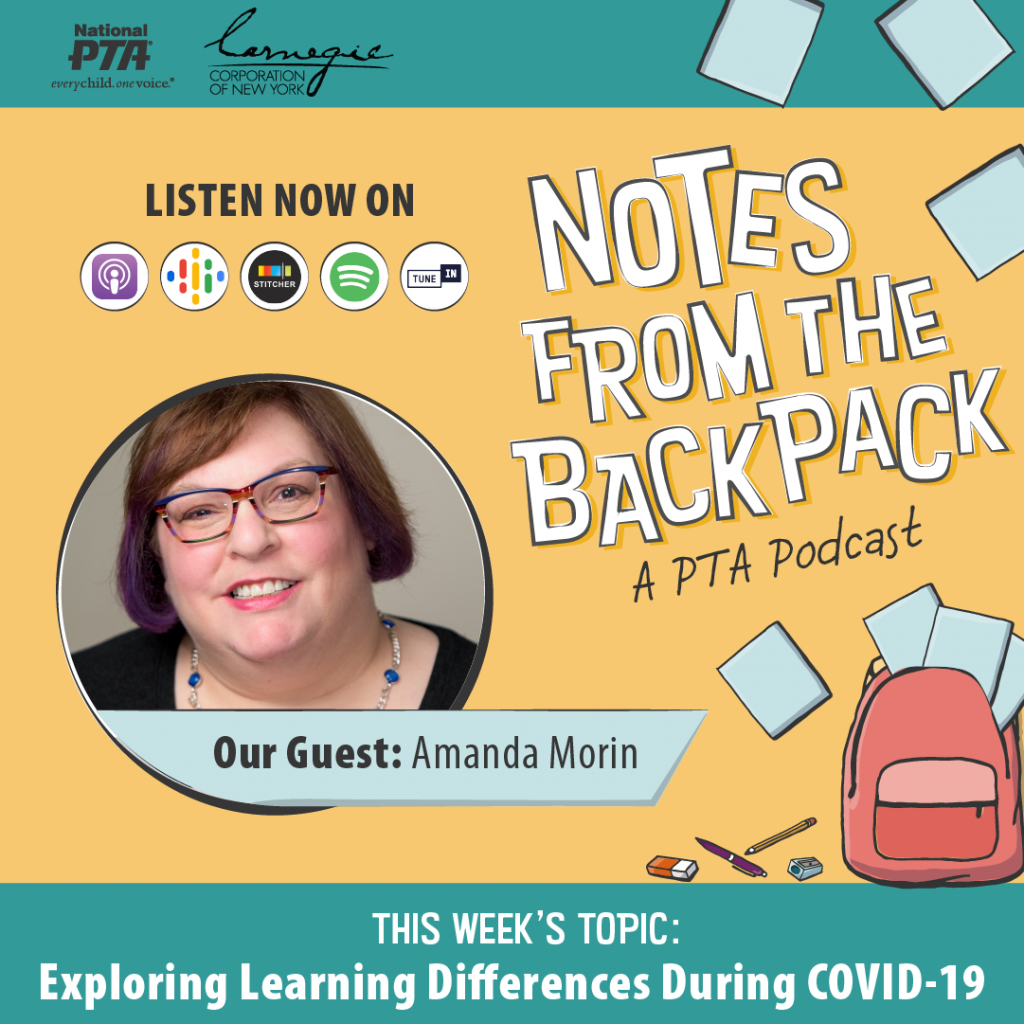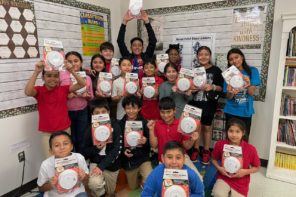If two months ago someone had asked me to sum up my feelings about the approaching school year, I can confidently say my answer would have started with “what if.”
What if my school district chooses not to reopen in person? What if we have to make it through another six months of remote learning? What if the struggles my friends and I are noticing in our kids aren’t totally pandemic-related?
At home last spring, parents and caregivers experienced our children’s learning firsthand. While some kids thrived outside of the classroom, others struggled with remote learning. With those struggles came concerns about regression, or COVID slide.
Now the school year is in full swing—during a pandemic—for some families these concerns persist, even if school is in person. Parents might see their kids falling behind, wonder what’s going on and not know how to best support their child. And naturally, we worry with more “what ifs.”
What if the struggles go beyond difficulty with remote learning? What if the challenges are actually signs of a more significant issue they didn’t pick up on before?

Exploring Learning Differences during COVID-19
Listen to the Notes from the Backpack podcast episode with Amanda Morin where she discusses ways to navigate the school year with children who have learning challenges. Get tips to help set up your child for success.
How the What Ifs affected my family
We’ve known for a long time that our 10-year-old son has ADHD and autism, but that knowledge hasn’t kept us from worrying about regression. When the pandemic upended school last year, many of the in-person supports and services to help him with social skills, organization, and focus didn’t translate well to a virtual environment.
Throughout the summer, we noticed that he was losing skills we’d taken for granted. He was distracted to the point of interrupting his own sentences and couldn’t keep track of where any of his belongings were. He lost the ability to enter into a conversation appropriately and to respond with relevant information to what other people were saying. He also had meltdowns over things he used to take in stride.
I feel fortunate that my background as a teacher and early intervention specialist means I have ideas about what to do with my worries about his skill regression. But for other parents and caregivers who have noticed things that they don’t fully understand, I’m sure that not knowing what it means or how to help is stressful and overwhelming.
Here’s how you can answer the “what ifs” and feel less overwhelmed:
Recognize we’re all a little off-kilter
The coronavirus pandemic has turned all of our lives upside down. The lines between work and home, school and home, and parenting and teaching have blurred. Parents are pressed to find space and time for everyone while also trying to manage big emotions—our children’s and our own. Many of us are experiencing anxiety and feeling a lack of control. If parents are having trouble figuring out how to make these new circumstances work, it’s not a surprise that our kids may also be struggling.
Take N.O.T.E.
The recently launched Take N.O.T.E. initiative was developed by Understood in partnership with the American Academy of Pediatrics and through research with parents. It includes free, digital-first resources in both English and Spanish to help parents make sense of their child’s behavior changes or difficulty with other skills. N.O.T.E. stands for four steps to take to identify possible learning and thinking differences:
- Notice if something is going on with your child that seems out of the ordinary, like struggles with reading or trouble paying attention.
- Observe and keep track of patterns in your child’s behavior to help make sense of what you’re seeing.
- Talk with your child, their teachers, and other caregivers about what you’re observing.
- Engage with trusted professionals, like pediatricians.
Prioritize parent-teacher communication
My son is adjusting well to a hybrid learning model, in no small part because we shared with his teacher and service providers all of the skill regression we’d seen. He went back to school with different experiences, skills, and even worries than he had when he left. His teachers needed to know what’s happening with him and in our house to give him the right support.
Starting that conversation with your child’s teacher isn’t always easy, especially if there’s a lot of emotional information to convey. That’s why Understood created a one-pager you can use to update teachers on how your child is doing. You can print it and fill it in by hand or complete the form on your computer or other device.
The “what ifs” about schooling during COVID may go on for a while, and so may some of the struggles families and teachers see in kids. But noticing, observing, talking, and engaging can help families start to get answers—and support for their kids.
Amanda Morin is a writer, parent advocate and the senior expert on family advocacy and education at Understood, a nonprofit social impact organization dedicated to shaping a world where people who learn and think differently can thrive. Amanda lives in the Portland, Maine and is a mom to kids who learn differently.





